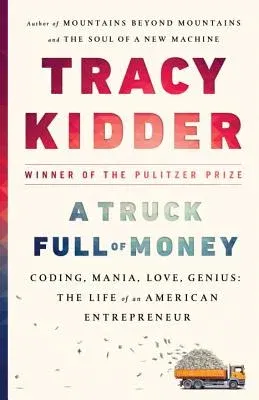"A perfectly executed, exquisitely reported parable of the Internet
age and the wild, mad adventure that is start-up culture."--Charles
Duhigg
Fortune, mania, genius, philanthropy--the bestselling author of
Mountains Beyond Mountains gives us the inspiring story of Paul
English, the founder of Kayak and Lola.
Tracy Kidder, the "master of the nonfiction narrative" (The Baltimore
Sun) and author of the bestselling classic The Soul of a New Machine,
now tells the story of Paul English, a kinetic and unconventional
inventor and entrepreneur, who as a boy rebelled against authority.
Growing up in working-class Boston, English discovers a medium for his
talents the first time he sees a computer. As a young man, despite
suffering from what would eventually be diagnosed as bipolar disorder,
he begins his pilgrim's journey through the ups and downs in the brave
new world of computers. Relating to the Internet as if it's an extension
of his own mind, he discovers that he has a talent for conceiving
innovative enterprises and building teams that can develop them,
becoming "a Pied Piper" of geeks. His innovative management style,
success, and innate sense of fair play inspire intense loyalty. Early
on, one colleague observes: "Someday this boy's going to get hit by a
truck full of money, and I'm going to be standing beside him." Yet when
English does indeed make a fortune, when the travel website Kayak is
sold for almost two billion dollars--the first thing he thinks about is
how to give the money away: "What else would you do with it?" The second
thing he thinks is, What's next?
With the power of a consummate storyteller, Tracy Kidder casts a fresh,
critical, and often humorous eye on the way new ideas and new money are
reshaping our culture and the world. A Truck Full of Money is a
mesmerizing portrait of an irresistibly endearing man who is
indefatigable, original, and as unpredictable as America itself.
Praise for A Truck Full of Money
"Kidder's prose glides with a figure skater's ease, but without the
glam. His is a seemingly artless art, like John McPhee's, that conceals
itself in sentences that are necessary, economical, and
unpretentious."--The Boston Globe
"Kidder's portrayal of living with manic depression is as nuanced and
intimate as a reader might ever expect to get. . . . You can't help
admiring Mr. English and cheering for him."--The New York Times

